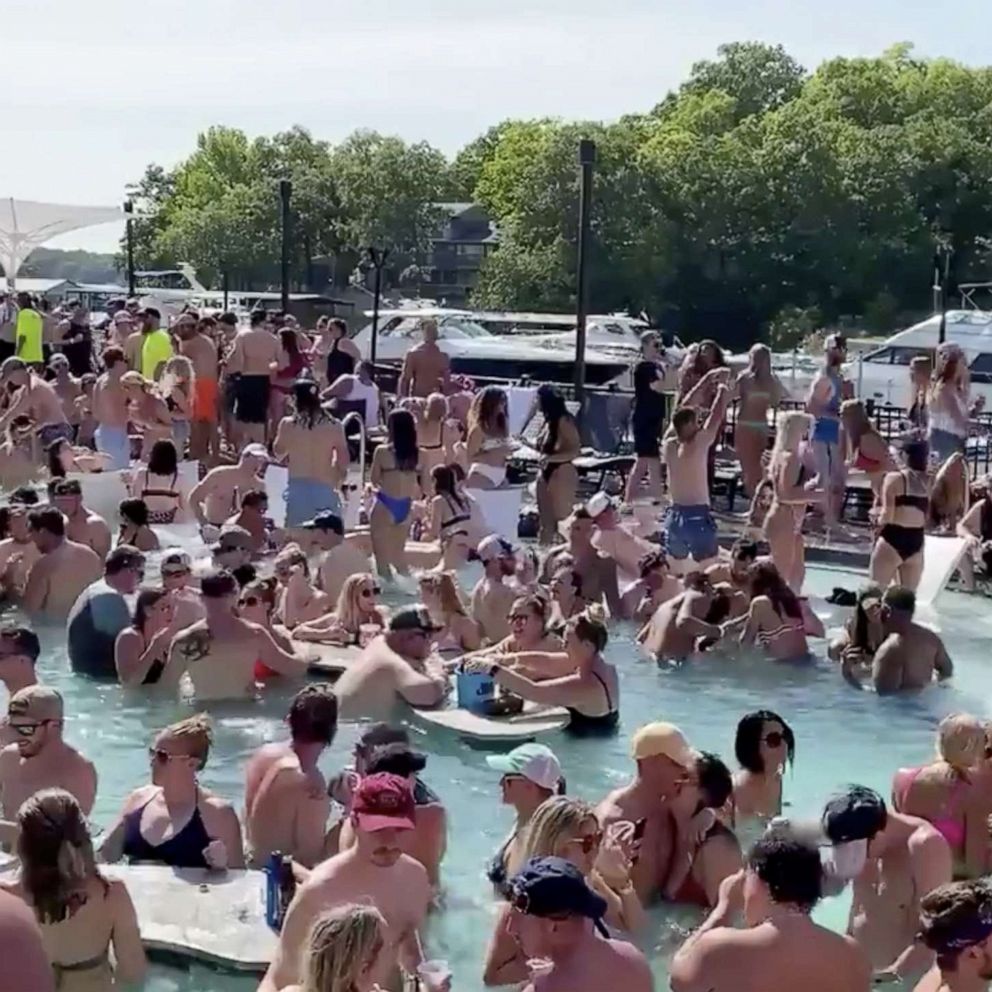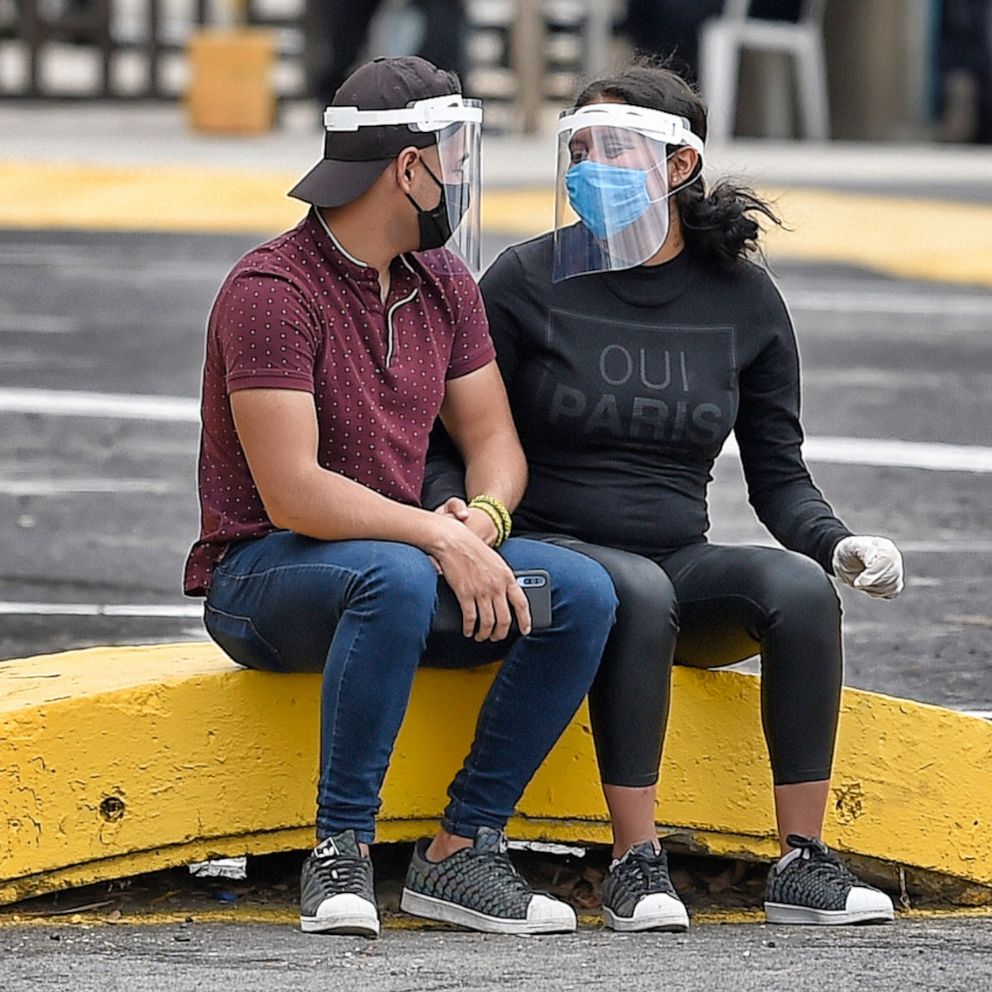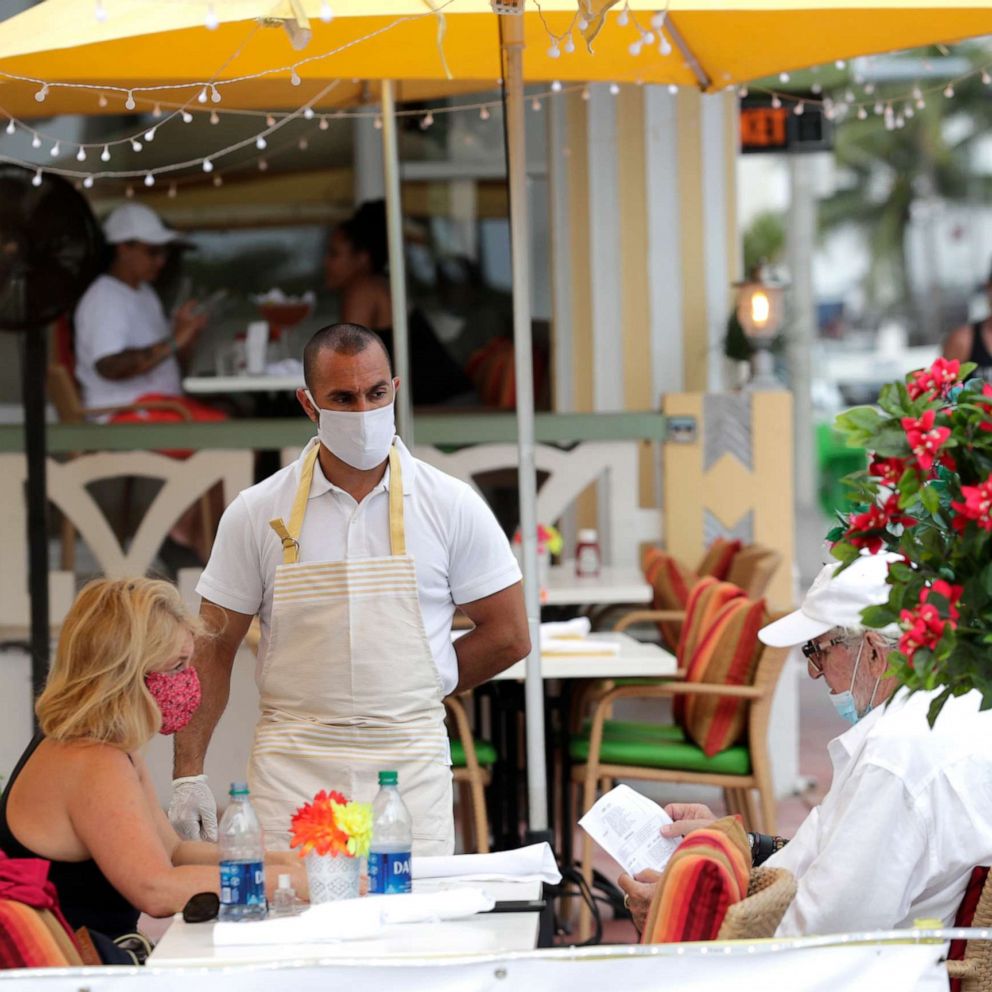Are we really 'all in this together'? Coronavirus taking an unequal toll on minorities
Research shows minorities with COVID-19 die more often -- and more prematurely.
When Dr. Jose Paez first started feeling sick, he prayed it was just the flu.
Despite being young and healthy, Paez, who is Hispanic Black, knew he would not be exempt from the well-established uneven toll that COVID-19 takes on minority Americans.
It's a concern backed up by data, as a white paper from Harvard has found that Black and Latino Americans with COVID-19 not only die more often -- but also die more prematurely compared to the white population. This recent review echoes data from the Centers for Disease Control showing the death rates among Black and Latino Americans far outweigh those of their white counterparts.
Even as a physician himself, Paez, who was diagnosed with COVID-19 early in New York City's coronavirus outbreak, worried the health care system would not treat him equally.
"Despite being my second language, I feel like my English diction and proficiency are good and ambiguous enough that over the phone I feel like my interactions are pretty neutral," said Paez, a resident doctor in general psychiatry at Elmhurst Hospital in New York.
Still, he said, "I get scared or hesitant when it's time to give my name for appointments. I was worried that once they knew my ethnicity I would either not get tested or have a date way in the future."
The racial and ethnic mortality gradient detailed in the Harvard report is particularly pronounced when broken down by age. Notably, Harvard researchers found that death rates of younger adults through midlife were five to nine times higher among Black, Latino and Indigenous people as compared to whites -- the highest being in African Americans.
Mounting data shows that the virus that causes COVID-19 is universally infectious and has deeply impacted the lives of all Americans. But amid a spirit of togetherness, the burden of disease is shared disproportionately by America's minority populations, most notably among Black and Latino Americans.
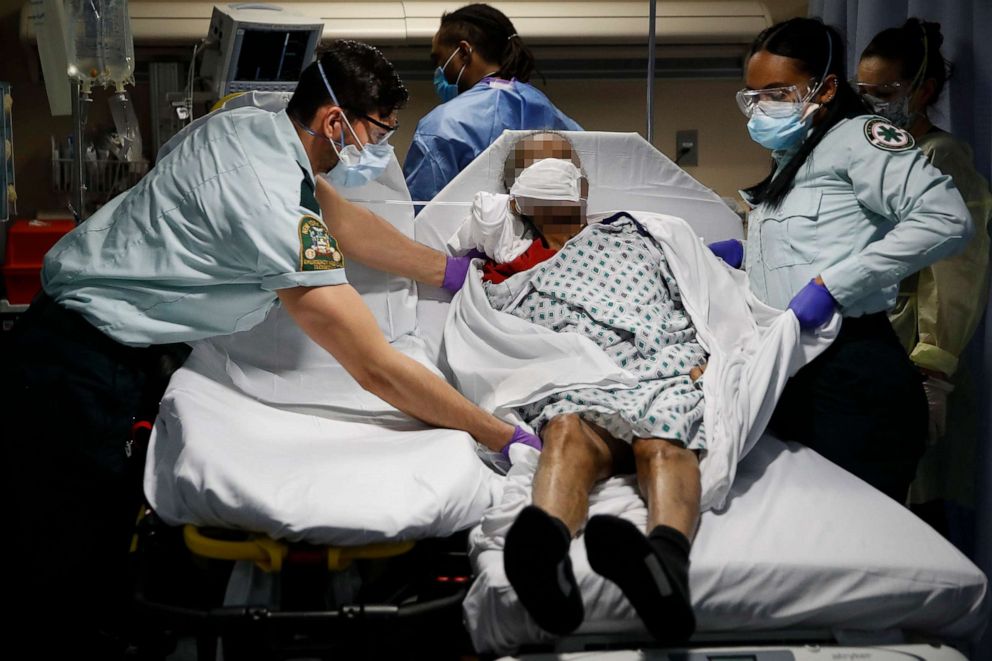
"Black, Latino and Indigenous people are subject to both historical and ongoing discrimination that is rooted in both institutions and culture," said Dr. Mary Bassett, co-author of the study and director of Harvard's Center for Health and Human Rights. "This is reflected in exposure to disease-causing environments and poorer access to services, with the result that these groups face shorter, sicker lives."
Beyond the illness itself, the emotional ramifications of COVID-19 are also disproportionately felt by minorities. In a recently published study in the Journal of the American Medical Association, researchers at the Johns Hopkins Bloomberg School of Public Health uncovered a more-than-threefold increase in the number of Americans experiencing psychological distress this spring as compared to just two years ago -- a finding most pronounced among Hispanic adults, as well as among young people and those in low income households.
Even outside of the pandemic, minority health starts on uneven ground.
"African Americans and Latinos have a higher likelihood of having lack of access to care, higher likelihood of having poor health literacy, likelihood of being geographically segregated from care services, and more importantly have a greater burden of illness in the U.S.," explained Dr. Italo Brown, M.D., M.P.H., clinical emergency medicine instructor and former social emergency medicine fellow at Stanford University.
Long, inflexible work hours and high rates of health illiteracy among minority populations often lead to neglect of underlying health problems, like diabetes, which makes additional or new illness worse, said Paez.
"I feel like many of these patients are already walking on a tightrope," he said.
According to the CDC, people with underlying medical issues like sickle cell disease and diabetes are more likely to become severely ill when infected with the novel coronavirus, which could mean winding up in the hospital, in intensive care, on a ventilator, or even dying.
"African Americans and Latinos have a higher likelihood of carrying those chronic illnesses," said Brown, pointing to the link between prevalence of underlying disease in minority populations and the severity of the coronavirus illness they experience.
"It's not just because of the preexisting illnesses, but also because of all those social elements that play into their increased risk as compared to white counterparts," he said.
Bassett echoed this sentiment, saying her research suggests that sources of excess risk to minorities include higher prevalence of coexisting health problems, less access to care, and failure or inability to adopt public health prevention measures. She added that exposure to the coronavirus through continued work outside the home in jobs deemed "essential" deserves more attention.
In short, this means that worse health among minorities has little to do with their genetics, but instead has to do with the lack of opportunities and resources they face. These so-called "social determinants of health" have only been amplified by the COVID-19 outbreak, as socioeconomic disadvantages also afford disparate opportunities for protection against the current pandemic, experts say.
Columbia University public health researchers who assessed New York City subway swipe data by neighborhood before and after the pandemic struck told ABC News the evidence shows that low-income minority populations are more reliant on public transportation.
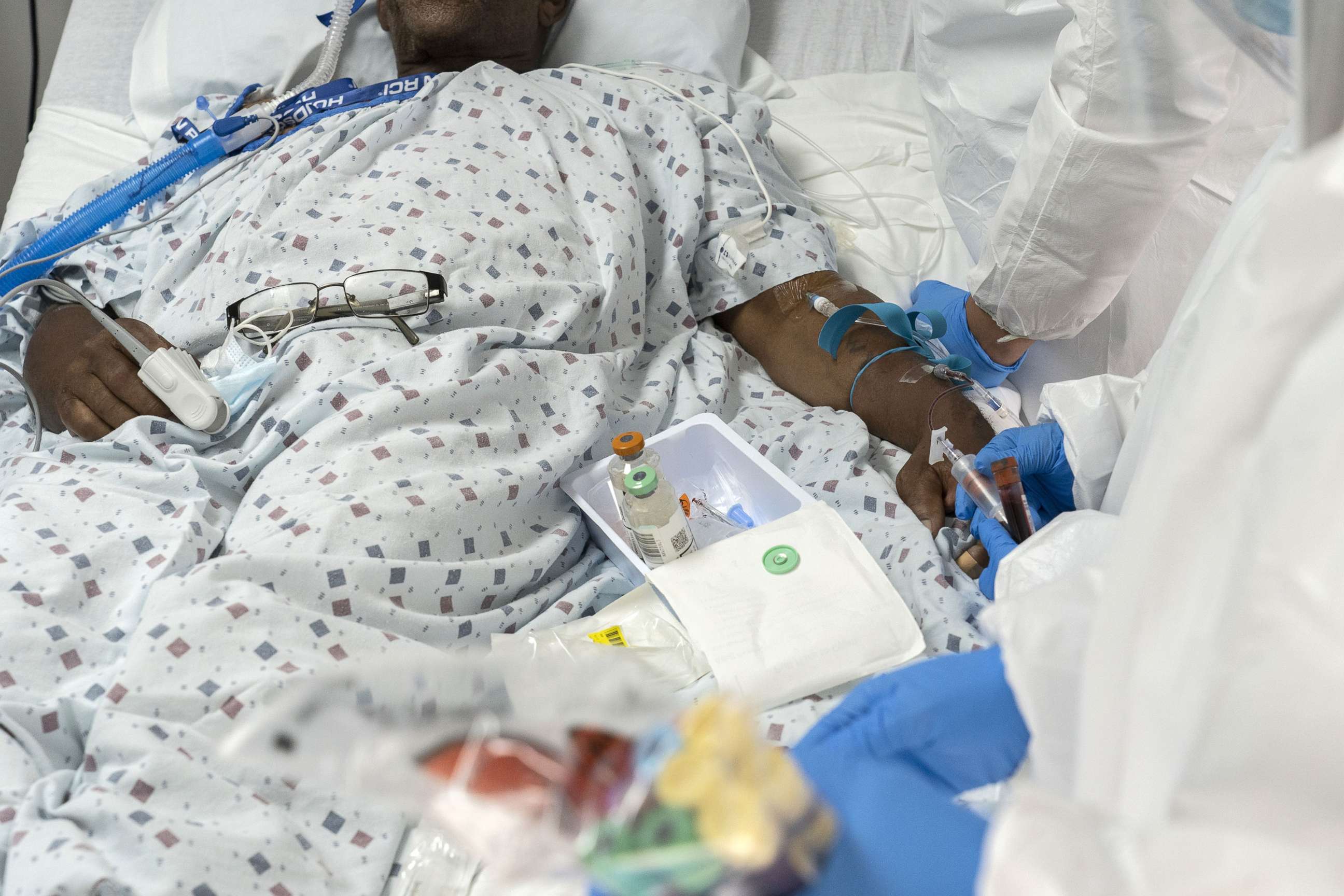
According to the study's co-author, Dr. Micaela Martinez, not everyone has access to computers or the internet and the types of jobs that can be done from home. People working lower paid jobs involving manual labor have to put themselves at risk by going out into the community and riding the subway.
Not surprisingly, these same neighborhoods with lower median incomes and larger numbers of minorities and essential workers, also saw higher numbers of COVID-19 cases.
"There's not an effective way to social distance when you make up a third or more of the essential workforce [and] you don't have the luxury of not going to work," said Brown.
The tendency for some minorities to live in multigenerational households makes the social distancing practices necessary to keep people safe even harder to follow.
And all of these factors risk being compounded by a pervasive mistrust of the health care system among many minorities. Latino immigrant populations in particular may be reluctant to seek testing due to fear surrounding their immigration status.
"Dollars have to be pushed towards organizations that are already embedded in communities," said Brown. "You have to build their capacity, meaning give them adequate testing -- so that people know who the persons are that are testing them and that there is a lower likelihood of them being discriminated against or biased against because of how they look or the community they come from."
But Bassett expressed hope for the future.
"These long-standing health disparities by race and ethnicity are not due to genetic differences or unfortunate personal choices, but to societal forces that embed and reinforce racial-ethnic disadvantage," she said. "This can be changed."
ABC News' Eden David and Laura Romero contributed to this report.
Ayodola Adigun, M.D., M.S., attending in pediatric and adult psychiatry and former fellow in child and adolescent psychiatry at Yale University, and Jessica Johnson, M.D., senior resident in emergency medicine at Stanford University, are contributors to the ABC News Medical Unit.
What to know about the coronavirus:
- How it started and how to protect yourself: Coronavirus explained
- What to do if you have symptoms: Coronavirus symptoms
- Tracking the spread in the U.S. and worldwide: Coronavirus map
Tune into ABC at 1 p.m. ET and ABC News Live at 4 p.m. ET every weekday for special coverage of the novel coronavirus with the full ABC News team, including the latest news, context and analysis.
